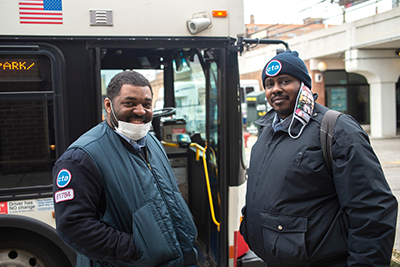As Americans continue living in an unprecedented era of quarantining, many employees aren’t quarantining at all. Workers in big-box retail shops, warehouses, grocery stores, and more are all still powering the economy as “essential employees,” and they are still physically interacting with other people throughout the day.
They can’t be asked to work from home—their safety requires different solutions. And where there is a dispute over safety, litigation is sure to follow. What does that mean for employers, and how will workers’ compensation interact with social distancing? We are all going to find out—litigation over COVID-19 deaths has already begun.
Employer Blamed for COVID-19-Related Death
In Illinois, a retail worker died of complications from COVID-19. In a new lawsuit—apparently the first of its kind—his lawyers blame the death on the employer’s failure to follow social-distancing guidelines.
The lawsuit faults the employer for allegedly not doing enough to clean and sterilize the workplace, not providing protective equipment for staff, and not providing adequate warnings. Similar lawsuits will proliferate in the months to come.
Why Workers’ Comp May Not Cover All Complaints
The workers’ comp system of each state is built around the idea that an exclusive, administrative remedy should exist for workers injured on the job. But the exclusivity has never been absolute.
For example, most states exempt intentional torts (wrongful acts), and under Oklahoma’s current scheme, an employer may not use workers’ comp’s exclusive remedy to escape a lawsuit outside the workers’ comp system if its acts were substantially certain to cause injuries to its employees.
But how can a court draw that line when evaluating the impact of a virus—especially when the employee could have contracted the virus anywhere?
While it would be ridiculous to say an employer could be “substantially certain” any particular human interaction resulted in viral transmission, businesses with “essential employees” on the front lines are still going to be heavily scrutinized in lawsuits.
Best Practices for Employers with ‘Essential Employees’
Employees at grocery stores, gas stations, and the many shops now offering curbside service are going to experience the most potential exposures. When fighting over whether their injuries are compensable under workers’ comp schemes or through traditional lawsuits, litigators and courts alike are going to ask, “Did the employer follow state, federal, or health authorities’ safety guidelines? Did they limit the number of guests in the store at any time? Did they make antibacterial soap or face masks available for staff?”
Many businesses have developed creative solutions to keep their doors open during this crisis; however, that same creativity should also be used when thinking about safety. And employers will be asked to consider not only basic pandemic procedures but also specialized guidance or concerns raised by industry and trade associations, unions and employee advocates, and employees themselves.
Taking any proactive steps now will be crucial in the years to come, as plaintiff lawyers second-guess pandemic decision-making. It’s not yet clear where the line will be drawn on intentional torts, substantial certainty, and viral transmission in the context of workers’ comp. What is clear is that employers must act now to protect their employees and their businesses.
Jason McVicker is a trial lawyer with the Tulsa, Oklahoma, office of McAfee & Taft. He may be contacted at jason.mcvicker@mcafeetaft.com.

